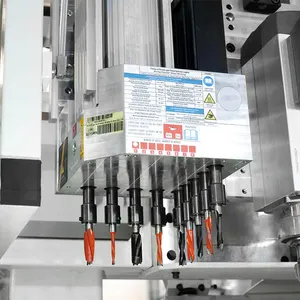Understanding Marine Vessel Engines
Marine vessel engines, integral to the propulsion and steering of watercraft, are pivotal in the marine sector, powering everything from ships and boats to various maritime conveyances. These engines are tailored to deliver the thrust required for vessel movement across waterways, serving an array of purposes including transport, fishing, recreation, and specialized commercial activities.
While sharing core principles with automotive engines, marine vessel engines are adapted to meet the distinct challenges of aquatic settings. They boast superior corrosion resistance and the capacity to operate under high loads for prolonged periods, a feat less feasible for land-based vehicles. The design of these engines is governed by considerations of dependability, fuel efficiency, and adherence to maritime regulations.
A diverse group of marine professionals, from shipbuilders and engine producers to individual boat owners, rely on these engines for dependable propulsion. The performance and efficiency of marine vessel engines have a direct impact on operational expenses, safety, and environmental footprint, underscoring the importance of selecting the right engine for any nautical endeavor.
Varieties of Marine Vessel Engines
An extensive array of marine vessel engines caters to specific operational needs and conditions. Common varieties include:
-
Two-Stroke Engine: Known for its straightforward design and impressive power-to-weight ratio, the two-stroke engine is favored for its compactness and efficiency in smaller vessels and high-performance settings.
-
Four-Stroke Engine: Four-stroke engines, increasingly preferred for their sophisticated and cleaner performance, are versatile, powering a broad spectrum of watercraft from leisure boats to sizable commercial ships.
-
Outboard Motor: Outboard motors, affixed to the stern, cater to smaller crafts. Their portability and straightforward upkeep make them a top choice for personal watercraft and diminutive fishing boats.
-
Inboard Motor: Inboard motors, housed within the hull and linked to the propeller shaft, are typically found in larger vessels, offering advantages like augmented cabin space and improved maneuverability.
-
Stern Drive Engine: Merging inboard and outboard traits, stern drive engines are mounted on the transom with powertrain components housed internally, striking a balance between performance and maintenance ease.
Selecting a Marine Vessel Engine
Choosing the appropriate marine vessel engine is a pivotal decision for entities engaged in maritime commerce. Key considerations in engine selection include:
-
Engine Type: The engine type—be it inboard, outboard, or a hybrid of both—should align with the vessel's size and intended use. Inboard engines are typical in larger crafts, while outboards suit smaller ones. The engine's horsepower (hp) should be adequate for the vessel's speed aspirations, balancing power with operational efficiency.
-
Fuel Type: The choice between diesel and gasoline engines hinges on availability, environmental regulations, and cost considerations. Diesel variants are lauded for their fuel economy and extended range, albeit at a higher upfront cost.
-
Core Components: An engine's longevity and performance are often contingent on the quality of its core components, including the motor, gearbox, bearings, gears, pressure vessels, pumps, and more.
-
Applicable Industries: The specific industry or application, whether it's hospitality, manufacturing, or leisure, will dictate the engine type and specifications necessary for optimal performance in that domain.
-
Cylinder Configuration: The engine's cylinder count can influence performance and maintenance needs. More cylinders generally result in smoother operation and potentially more power, but can also mean greater complexity and expense.
These considerations are crucial for businesses to make enlightened choices when procuring marine vessel engines via B2B platforms such as Alibaba.com.
About Marine Vessel Engines on Alibaba.com
Alibaba.com distinguishes itself as a premier global marketplace, linking businesses with an expansive inventory of marine vessel engines to suit varied industrial requirements. The platform presents a plethora of choices from international suppliers, facilitating the procurement of the exact engine type needed for business operations or resale. Alibaba.com enhances global trade by offering tools for communication in native languages and a mobile-optimized purchasing experience.
Alibaba.com's commitment to quality is evident through services like Trade Assurance, which safeguards payments until delivery confirmation, reinforcing the platform's dedication to secure and trustworthy B2B transactions. Additionally, the ability to connect buyers with suppliers providing bespoke solutions underscores Alibaba.com's value as an essential resource for companies in search of specialized marine equipment.
Opting for Alibaba.com to source marine vessel engines grants access to one of the largest online B2B marketplaces, where variety and convenience are paramount, with features designed for effortless order management and delivery services tailored to diverse business requirements. This positions Alibaba.com as an indispensable partner for firms seeking to maintain seamless operations with dependable engine solutions.
Common FAQs for Marine Vessel Engines
What distinguishes a 2-stroke from a 4-stroke marine engine?
2-stroke engines utilize a combined fuel-oil mixture and are typically employed in lighter, more compact configurations, while 4-stroke engines have separate fuel and oil reservoirs, offering enhanced fuel efficiency and longer intervals between maintenance.
How should I ascertain the correct engine size for a marine vessel?
Engine size selection should be based on the vessel's intended use, accounting for factors like size, desired speed, and carrying capacity. Expert consultation or discussions with engine manufacturers can aid in identifying the most fitting engine size.
What considerations are paramount when selecting a marine vessel engine for commercial fishing?
In commercial fishing, it is imperative to opt for a robust and economical marine vessel engine capable of enduring extended operation periods and challenging conditions. Engines with reduced fuel consumption and longer maintenance intervals are preferable.
Is it possible to obtain a marine vessel engine customized for specific business requirements?
Certainly, numerous suppliers offer customization services such as ODM or OEM, enabling businesses to adapt marine vessel engines to their precise operational needs and commercial objectives.
What kind of after-sales service is typically available with a marine vessel engine purchase?
After-sales service offerings vary among suppliers but may encompass online support, video technical assistance, and the availability of engineers for overseas machinery servicing. It is advisable to confirm these services prior to purchase.
What is the expected lifespan of a marine vessel engine before replacement is necessary?
The longevity of a marine vessel engine is influenced by factors such as frequency of use, maintenance practices, and engine quality. A diligently maintained engine can endure thousands of operational hours before necessitating replacement.
Are there environmentally friendly marine vessel engine options?
Indeed, eco-conscious alternatives like electric marine vessel engines are gaining traction, favored for their lower emissions and diminished noise pollution.
How can I verify the dependability of a marine vessel engine prior to purchase?
Assess key selling points such as extended service life, user-friendliness, high productivity, and supplier warranties. Reviews and ratings on Alibaba.com can also provide insight into the dependability of specific engine models.
What maintenance does a marine vessel engine require?
Marine vessel engines necessitate routine upkeep, including oil changes, filter replacements, and general inspections to maintain peak performance and durability. The precise maintenance schedule may vary based on operational conditions.
Is it feasible to repurpose a marine vessel engine for non-marine applications?
While marine vessel engines are primarily designed for nautical use, some may be adaptable for alternative applications. Nonetheless, it is crucial to note that such usage could invalidate warranties and potentially pose safety risks.










































 浙公网安备 33010002000092号
浙公网安备 33010002000092号 浙B2-20120091-4
浙B2-20120091-4